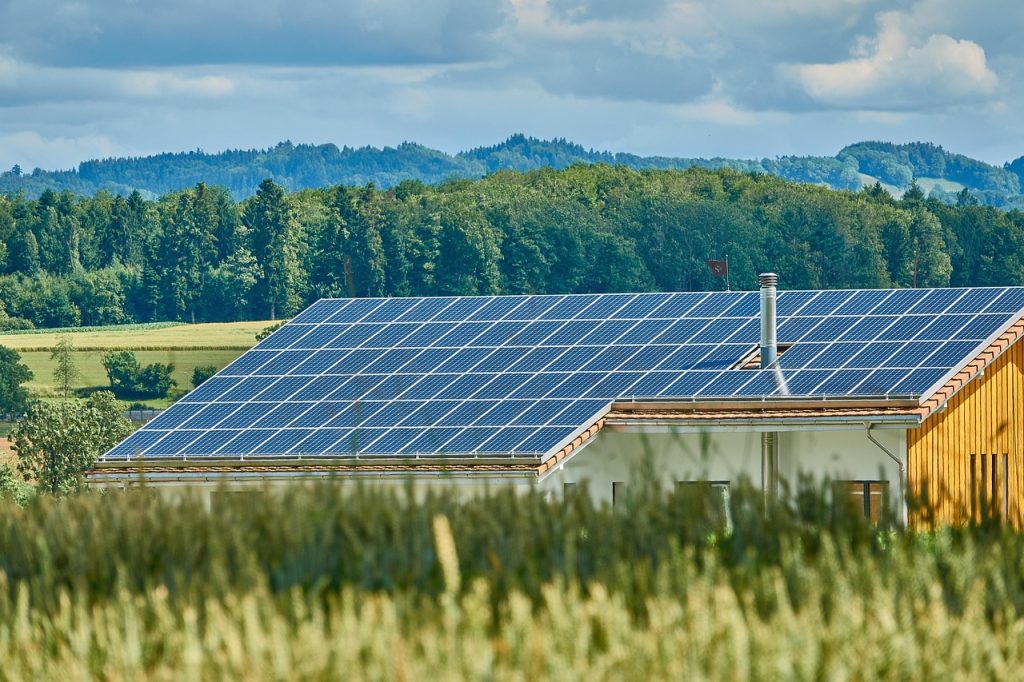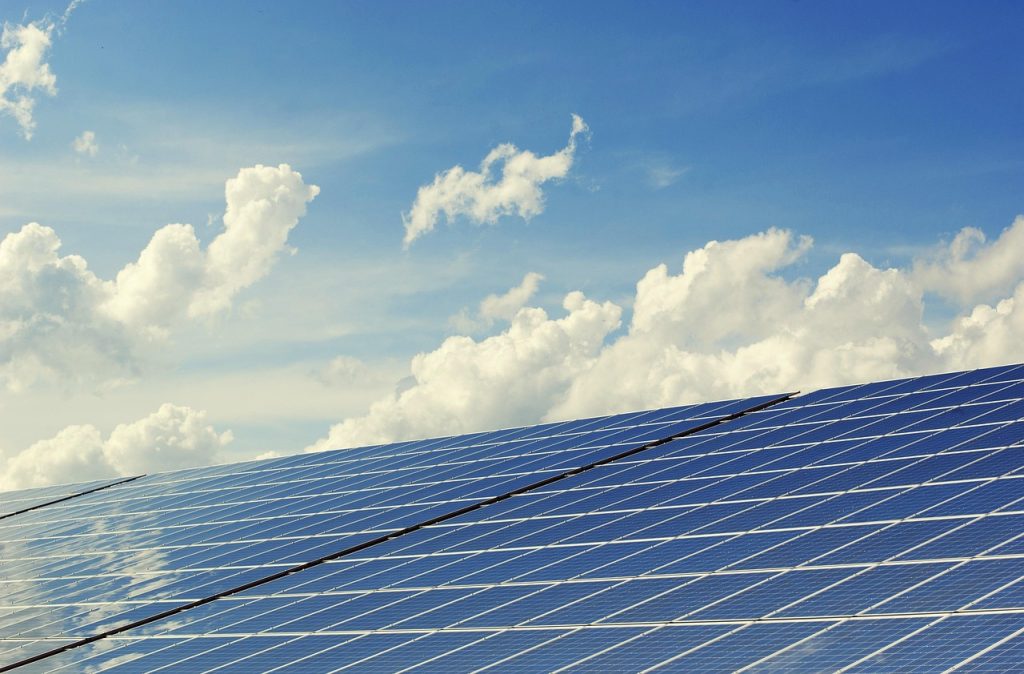With rising energy costs and a growing emphasis on sustainability, Solar Power Systems in Canada are becoming popular. Now, most Canadians are turning to solar power as a viable solution.
Now a day, solar energy is booming across Canada. In this blog, we’ll break down the costs of solar power, incentives, and myths to help you if you decide solar installation is right for your home.
Despite its northern location, solar energy is becoming increasingly popular in Canada due to the vast open spaces, large homes, high utility prices, and several rebate programs nationwide.
As the adoption of solar power systems in Canada increases, more Canadians are exploring their options for harnessing solar energy.
In this article, we will briefly look at some factors that have contributed to the explosion of interest in solar energy in Canada over the past few years.
Canadians are turning to solar power systems to solve rising energy costs. From tax credits to net metering programs, solar power systems in Canada are making investing in renewable energy more affordable and accessible. Solar Power System users are increasing rapidly in Canada.
Traditionally, Canadians use non-electric active solar system applications, but solar power systems are increasingly utilized through solar water heating systems for domestic and commercial purposes. The popularity of solar power systems in Canada is steadily increasing, and recent studies have shown that it could account for up to five percent of the country’s energy needs by 2025.

Solar Energy Potential in Canada: Myths vs. Reality
Suppose you are thinking about solar system in Canada . What’s the first thing that comes to your mind? How much solar irradiation (light energy) Canada receives per year?
The data shows that solar power systems in Canada can produce significant energy, making them a viable option for homeowners concerned about energy costs.
Thus, the performance of solar power systems in Canada is encouraging, especially in areas that receive ample sunlight.
Investing in solar power systems in Canada can provide long-term benefits and energy savings for households.
The answer is. The average system in Canada produces 1,133 kWh/kW/year, ( according to Natural Resources Canada )
which is even ahead of Germany (which is considered the global leader in solar energy).
Understanding the cost of solar power systems in Canada is essential for potential buyers looking to make the switch.
The main concerns center around cold weather and snow. However, it should be noted that studies have shown that solar panels that are not cleared after snowfall will only produce 5% less energy over the course of a year than panels that are cleared of snow. In comparison, due to high cloud cover, the fluctuations in power can easily be 15%.
So, snow is not a major issue and creates a minor inconvenience, and cold weather increases the efficiency of energy production.
On average, solar power systems in Canada can vary in price, but they offer substantial savings over time.
How Much Do Solar Power Systems Cost in Canada?
The answer depends on several factors, including the average cost of a solar panel. If you live in Canada and are looking for an answer to your home’s energy consumption, then you also need to consider where you live and your budget. We give you the idea only below.
Average Cost of Solar Panels for Canadian Homes
The average cost of a solar panel varies depending on several aspects, including the installer, your location, the complexity of the installation, the equipment used, etc. However, the average cost of a solar panel on your roof is approximately $3 per watt.
Transitioning to solar power systems in Canada can help address energy security and sustainability issues.
A typical Canadian home requires solar panels with a capacity of between 5 and 10 kW. Based on a 5 kW system and a price of $3 per watt, solar panels for your home would cost around $15,000. Generally, the price per watt is inversely proportional to the size of the system. So, larger systems can cost less than $3 per watt. Depending on where you live, you may also be eligible for one of the many rebates and incentives available across Canada. Depending on what incentives apply to you, the price can drop to $2.70 per watt or less.
Why does Canada need sustainable energy technologies?
Climate Change: Canada has committed to reducing greenhouse gas emissions under the Paris Agreement, and solar power systems in Canada can help achieve this goal by providing cleaner, more sustainable energy sources.
As solar power systems in Canada continue to evolve, they will play a crucial role in the nation’s energy future.
With more Canadians choosing solar power systems, the market is poised for growth and innovation.
e gas emissions under the Paris Agreement, and new energy innovations can help achieve this goal by providing cleaner, more sustainable energy sources.
Energy Security—New energy innovations can diversify Canada’s energy mix and reduce its reliance on fossil fuels, which can be subject to price fluctuations and supply disruptions.
Economic Opportunities – Developing and implementing new energy technologies can create jobs and economic growth, particularly in manufacturing and services.
Energy Affordability – New energy innovations can help make energy more accessible to Canadians, especially those in remote or rural areas.
Energy Self-Sufficiency – New energy innovations can help Canada become more self-sufficient and reduce its dependence on imported energy sources.
Energy Exports: Canada has significant potential for energy exports, particularly hydroelectricity and clean energy technologies, and new energy innovations can help expand these opportunities.
Overall, new energy innovations can help Canada achieve its climate and energy goals while stimulating economic growth and creating new opportunities for the country.

Factors Affecting the Average Cost of Solar Panels in Canada
Here are some elements that can affect the average cost of solar panels in Canada:
In summary, utilizing solar power systems in Canada is not just an investment in technology but also in a sustainable future.
System Size: The size of the solar panel system you need is a significant cost issue. Large systems with additional panels will undoubtedly cost more. Your energy consumption and needs will determine the size of the system.
Battery Storage: If you choose an off-grid system or want to store excess energy, battery storage can increase the overall cost. Additionally, you can rely entirely on solar solutions with a battery, resulting in low bills.
Equipment Quality: The solar panel, inverters, and other equipment you choose can impact your costs. High-quality parts may be more expensive but can provide superior long-term performance.
Local regulations: Local regulations, such as permits and laws, may affect costs. Some locations may have additional criteria or fees.
Roof Condition: Roof conditions can impact the average cost of solar panels. If your roof requires maintenance or solar panel installation, consider the price.
Orientation and Tilt: Your solar panels’ tilt and orientation can affect efficiency. Adjustments may be needed to maximize energy production.
Shading: Shading from trees, buildings or other obstructions may reduce energy production and require further mitigation measures.
Choosing an Installer: Different installers may charge different fees. It is important to collect several quotes and select a reliable installer.
So, the average cost of solar panels in Canada is determined by various factors. However, knowing your energy needs, incentives, geography, and other factors will allow you to estimate it more correctly. So, use solar panels and battery solutions to optimize your energy system. It will help you capture, use and store solar energy to power your home. This is a great green initiative. It also makes your electricity bills cheaper.
Conclusion
As Canadians, we know our seasons can be extreme—from snowy winters to long summer days—but that hasn’t stopped the rise of solar power nationwide. Most business owners and entire communities are turning to the sun as a clean, reliable energy source.
So, people in Canada are choosing solar energy, which isn’t just about saving on electricity bills—it’s about making a conscious decision for a better future. With today’s technology and growing support from government programs, solar energy is more accessible than ever, even in places you might not expect.


